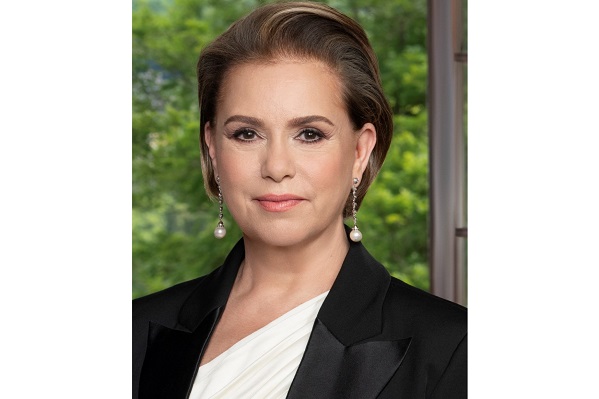 HRH the Grand Duchess of Luxembourg;
Credit: Cour grand-ducale / Emanuele Scorcelletti
HRH the Grand Duchess of Luxembourg;
Credit: Cour grand-ducale / Emanuele Scorcelletti
Her Royal Highness the Grand Duchess of Luxembourg, born on 22 March 1956 in Cuba, will celebrate her 64th birthday this Sunday.
Descended from Spanish bourgeoisie, Maria Teresa Mestre was born in Havana, Cuba, in 1956. Her family moved to New York in 1959 and on to Geneva in 1965, where she acquired Swiss citizenship.
Maria Teresa Mestre met His Royal Highness Grand Duke Henri of Luxembourg when they were both studying Political Science at the Graduate Institute of International and Development Studies in Geneva. The two graduated from the university in 1980. They married on 14 February 1981 at Notre-Dame Cathedral in Luxembourg. Prince Guillaume, the current Hereditary Grand Duke of Luxembourg, was born later that year, followed by Prince Félix in 1984, Prince Louis in 1986, Princess Alexandra in 1991 and Prince Sébastien in 1992. In October 2000, Prince Henri acceded to the throne and he and Maria Teresa became the Grand Duke and Grand Duchess of Luxembourg.
From an early age, Grand Duchess Maria Teresa has been interested in social and humanitarian causes. Since her marriage to Grand Duke Henri, she has undertaken several actions in favour of vulnerable people in Luxembourg and beyond trough the Fondation du Grand-Duc et de la Grande-Duchesse, which she chairs. She is also the patron of and is involved in several Luxembourg charities and socio-cultural organisations, including the Luxembourg Red Cross and Fondation Cancer.
With women's rights at the heart of her action, the Grand Duchess was appointed Goodwill Ambassador to UNESCO for the fight against poverty, the education of young girls and the promotion of microcredit in 1997 and, in 2007, she was appointed Eminent Advocate for Children to UNICEF for her action in favour of children orphaned by AIDS and child soldiers.
She further pursued this commitment by creating the Stand Speak Rise Up! association in September 2019. The association aims to denounce rape as a weapon of war and sexual violence in sensitive areas, prevent their proliferation and support victims in their recovery and their need for justice.








